Discover the Top 6 Lucrative Careers Flourishing Despite Recession Worries
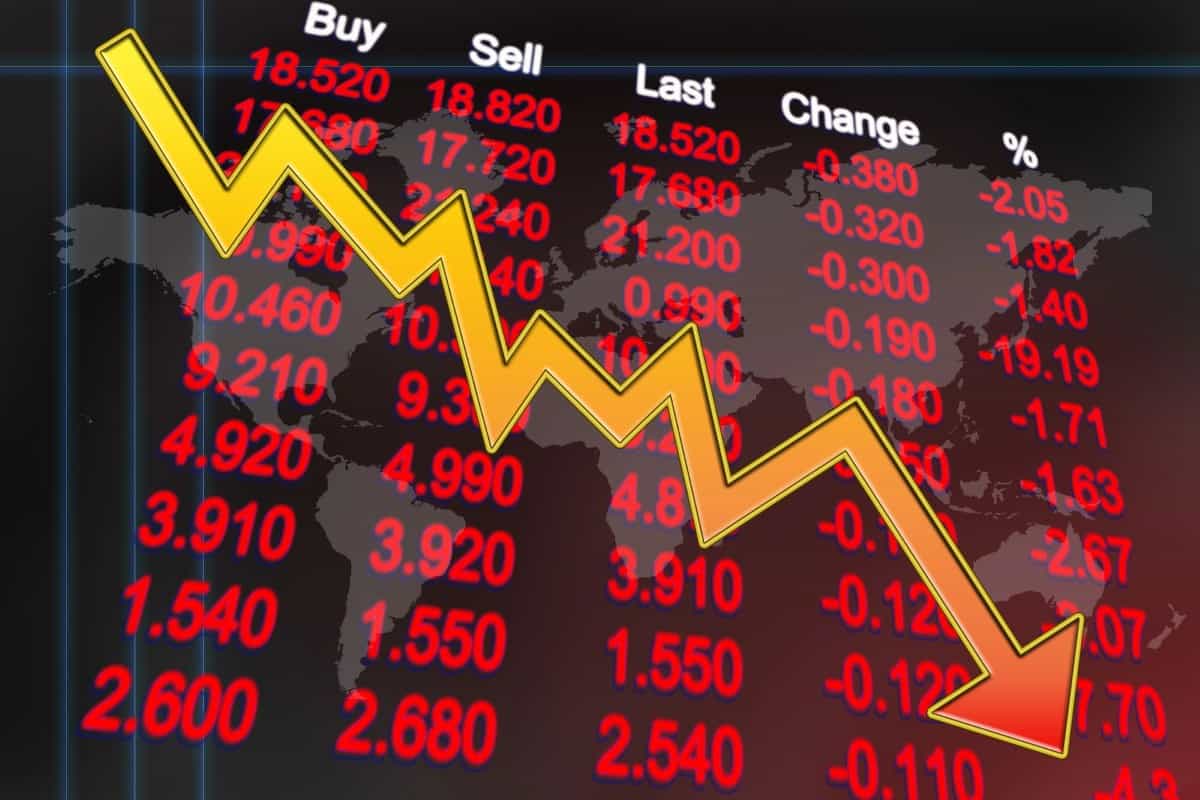
Seeking a career isn’t just about a hefty paycheck; it’s about finding purpose and security. In a world where economic stability can waver, landing a recession-proof job becomes paramount for our financial well-being. Recent times have underscored the importance of choosing a field that endures, regardless of economic fluctuations. So, what professions stand firm in the face of adversity, and which ones falter?
Here’s a look at some of the top recession-proof jobs.
What Does “Recession-Proof Jobs” Mean?
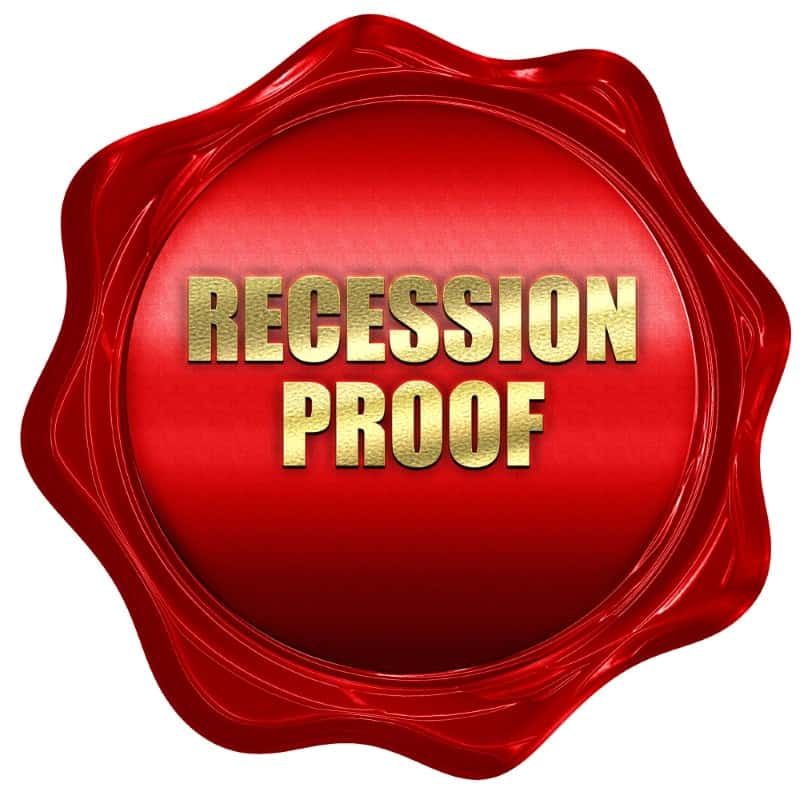
Recession-proof jobs provide job security, even in the most turbulent economic times.
To be clear, no job – no matter how useful – is recession-proof. All jobs are unquestionably impacted by the broader performance of the economy as a whole, as are potential opportunities to advance later down the line.
However, there is no doubt that some jobs do better in down economic times than others. Furthermore, some jobs will continue to expand, have value, and have a need – even if the economy crashes. Such jobs are known as recession-proof jobs. There are many reasons that a job may be recession-proof, including:
– They occupy such an essential role in our society that they can survive any economic downturn.
– People tend to prioritize their money so that the job can survive an economic downturn
– The occupation works in a field that is disconnected from total financial performance.
The best recession-proof jobs typically occupy multiple of the above factors. However, even the most recession-proof jobs will have moments where external factors may threaten their long-term viability.
Government Jobs

These jobs are only partially immune from a recession. Still, often, governments face situations where they must continue to perform their duties, even if it means doing uncomfortably or long-term fiscally imprudent decision-making.
A great example of this phenomenon is law enforcement officers, corrections officers, and others that deal with attempting to control crime rates.
There is no question that law enforcement officers have an essential role to play in our society. Not only are they needed to keep the police and expect the citizenry, but even in times of economic turmoil, people are typically willing to pay for police officers.
This explains why a field in public safety is in such high demand: The need for the service, and the political pressure to support such a service, will always exist.
As such, federal government employees and other federal agents are usually not directly impacted by a recession. It helps to do any job with the federal government, one of the best recession-proof jobs someone can have.
– Law enforcement workers
– Probation officers
– Corrections workers
– Public transportation workers
– Utility workers
– Waste management employees
Health Care Sector

The healthcare sector is an industry that is of such vital importance that it is relatively recession-proof. During a recession, jobs that manage health care may see dents to their job security. This is particularly likely to be the case for people who cannot afford health care or those who engage in more “discretionary” health care procedures, like plastic surgery.
However, health care is always going to be needed. The combination of government assistance and insurance providers is enough to keep the healthcare industry relatively functioning, particularly given the overwhelming need that people will have. As a result, healthcare jobs are usually considered to be recession-proof, regardless of the economic climate.
– Senior care workers
– Physical and occupational therapists
– Hospital administrators
– Home health aides
– Hospice workers
– Vets
– Data analysts and other jobs that deal with health care.
Funeral Directors

It may not be thought of in the field of recession-proof jobs, but working for a well-regarded funeral home can provide you with good job security. The reasoning is simple: People still die, no matter the economic circumstances! As such, funeral workers often find that they can still do business successfully during economic and financial turbulence.
Individuals and families become much more likely to choose less expensive options, select less-lavish coffins, and have smaller receptions after a funeral. This will impact the bottom line of a funeral home and may result in less expansion and profit, as well as fewer job openings.
However, given that the need will still exist during these times, funeral workers are usually regarded as relatively recession-proof jobs.
Legal and Tax Profession

Anything connected to the legal profession still does relatively well, even during high financial turmoil. The reasoning is pretty simple: legal professionals will always be needed.
Even in tough economic times, law firms usually see steady employment, although there are unquestionably threats to the job prospects of some lawyers during this time. The exact nature of these threats depends on the specific economic conditions of the moment.
The demand for legal services will always exist. People will always need wills done and revocable living trusts set up. Businesses will still open and close. Crimes will still happen, meaning people will still need to hire criminal defense lawyers.
Some specific areas of the legal profession may do exceptionally well during times of economic crisis. Bankruptcy lawyers are a great example of this. Like other times of financial stress, the great recession saw a massive increase in the number of businesses that closed and the number of people and companies that declared bankruptcy. There was an increased demand for lawyers dealing with bankruptcy and the end of companies.
Divorce lawyers may also see booming business during a recession. Stress levels skyrocket during a recession, and couples become more prone to fight over dwindling pools of money.
Indeed, these stress factors are typically among the higher reasons marriages disintegrate, which happens during a period of high economic stress. As a result, the demand for the services of attorneys that deal with divorces increases.
– Bankruptcy lawyers
– Divorce lawyers
– Paralegals
– CPA
– Tax accountants
– IRS enrolled agents
Education

Regarding recession-proof jobs, education can be a double-edged sword, and there is no question that all fields of education are not hit equally by a recession. However, the good news is that education is a more recession-proof field than most.
There are many reasons why this is the case.
First is obvious: Even in recessions, kids need to be educated. As noted above, governments can raise revenue in a way that can be separated from the rest of the economy.
Furthermore, most people acknowledge the overwhelming importance of education, keeping these jobs in high demand and making teachers one of the better education-proof jobs that someone can work in.
There is an ongoing shortage of people willing to work in the teaching field, which also increases the pressure for people to work here.
Some Service Industry Professions

Recessions often inspire people to cut out unnecessary services and reevaluate where they spend their limited money. Indeed, these jobs tend to be among the first to go when people are more worried about their financial future.
However, that doesn’t mean that all service jobs will be eliminated during a recession. Indeed, these jobs are vitally necessary in many cases and provide services that individuals cannot live without.
There are many examples of services without which people cannot survive in modern society. Some examples include:
– Grocery store employees
– Auto mechanics
– Utility workers
– Bus drivers
There is a wide range of positions, but as you can see, they have one thing in common: In some form or another, given the current makeup of our society, these positions will be recession-proof.
However, they may not be future-proof. Cars are becoming increasingly automated, and this may reduce the need for bus drivers in the future.
More and more people are relying on the internet to purchase groceries. Working as a grocery store employee may not always be in high demand.
In fact, will robots take my job with automation is a constant fear.
This brings up the final point: Recession-proof is excellent. But the future proof is better.
The job market is constantly changing to reflect modern society’s needs. As such, you may not want to consider what job will get you through a recession but what job won’t be automated in the future.
It can be challenging to determine, of course. However, it is an added consideration.
Should You Protect Yourself With Recession-Proof Jobs
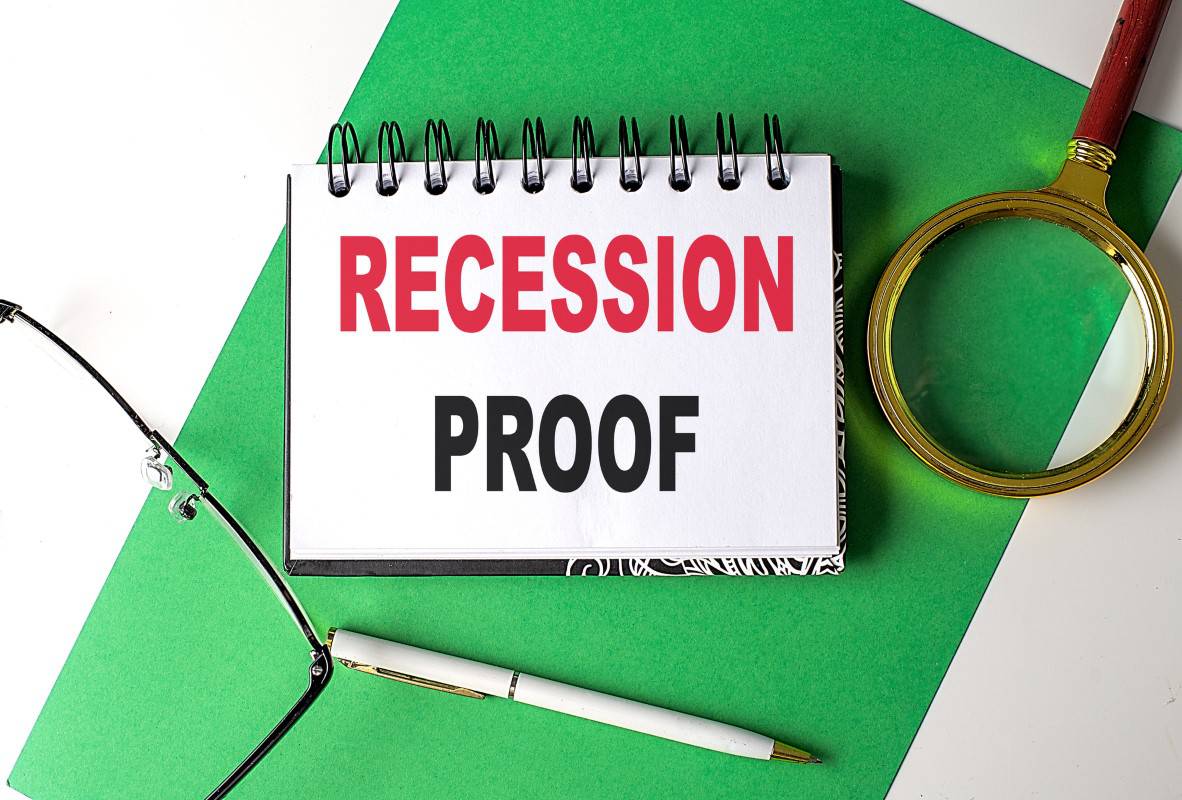
So, what’s the final career advice? Should you pick a job based on one likely to survive during economic uncertainty? After all, job stability is a hugely important factor in a job search.
Recession-proof jobs will always be in demand and must be part of anyone’s career selection decisions. However, just because a job is recession-proof doesn’t mean that the industry won’t be impacted, in some way, by a recession.
Every downturn is also different, which makes investing during a recession hard.
As such, keep all the above factors in mind, but don’t let a job’s relative recession-proof standing be the final deciding factor. Economic stress is a nightmare, but working in bad sectors worsens mental health.
One solution could be to work in growth sectors dependent on economic conditions. Yes, the job might not be safe in a downturn, but hopefully, you have a side hustle that takes care of your living expenses portion of your budget.
Of course, the best side hustle should combine your high-income skills and your current job or hobby. Create an online business related to your CPA skills if you are a CPA. Although software programming might be lucrative, you would need to spend a lot of time and effort to become an expert.
Due to the low cost of starting a website, your downside is limited compared to starting a physical business. You can start today as a side gig without interfering with your primary income source.
Pick a topic or niche related to your day job (so you already have the skills). Or your hobby so that your passion will continue to inspire others.
Start a website for only $4.99/month in 10 minutes and post at least once a week. Grow your audience and develop your true 1000 fans.
After the initial work on generating content in the form of an e-book, blog posts, courses, etc., your website will be one of the best investments for monthly income.
.Like Financial Freedom Countdown content? Be sure to follow us!
Japan and UK Just Fell Into a Recession. Is the US Next?
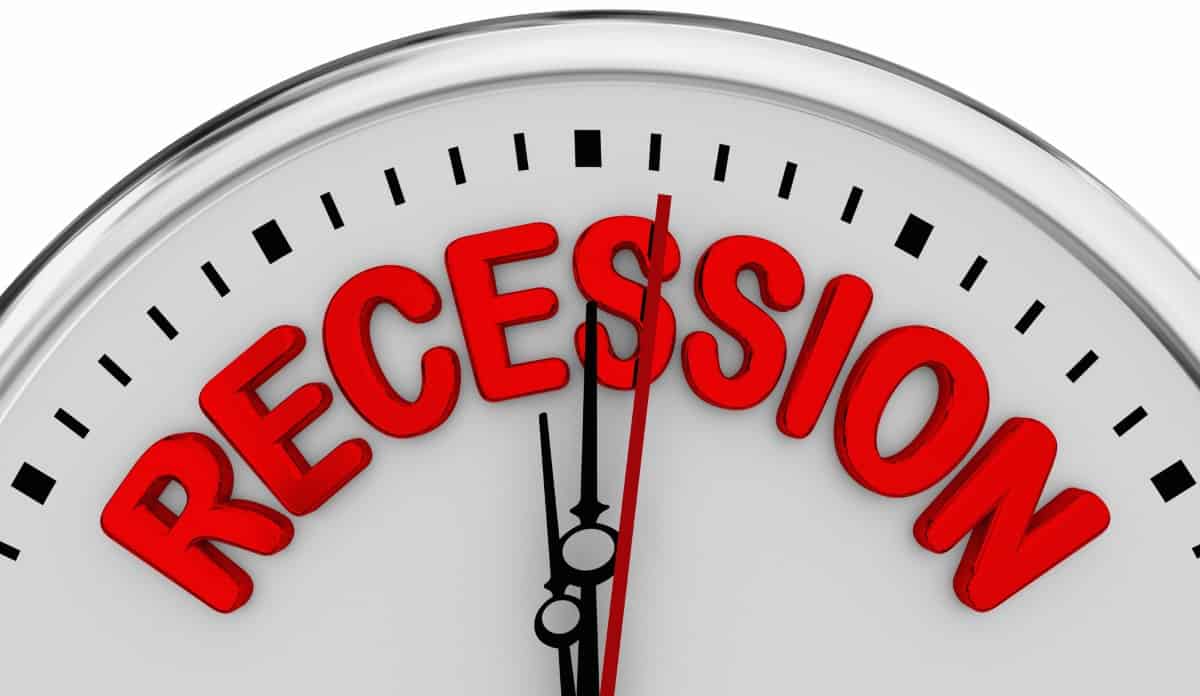
Two of the largest global economies have officially entered a recession as per the data released last week. Japan experienced an unexpected decline in GDP, attributed to its weakened currency and aging population. Simultaneously, the UK witnessed a contraction in growth for the second consecutive quarter, occurring just months before a crucial election. Economic data released in the U.S. showed rising unemployment. Although the Federal Reserve could cut rates, inflation came in higher than expected effectively causing concern among economist.
Japan and UK Just Fell Into a Recession. Is the US Next?
National Debt Exceeds Previous Projections, Signaling Troubling Times Ahead for the U.S. Economy as per CBO March report
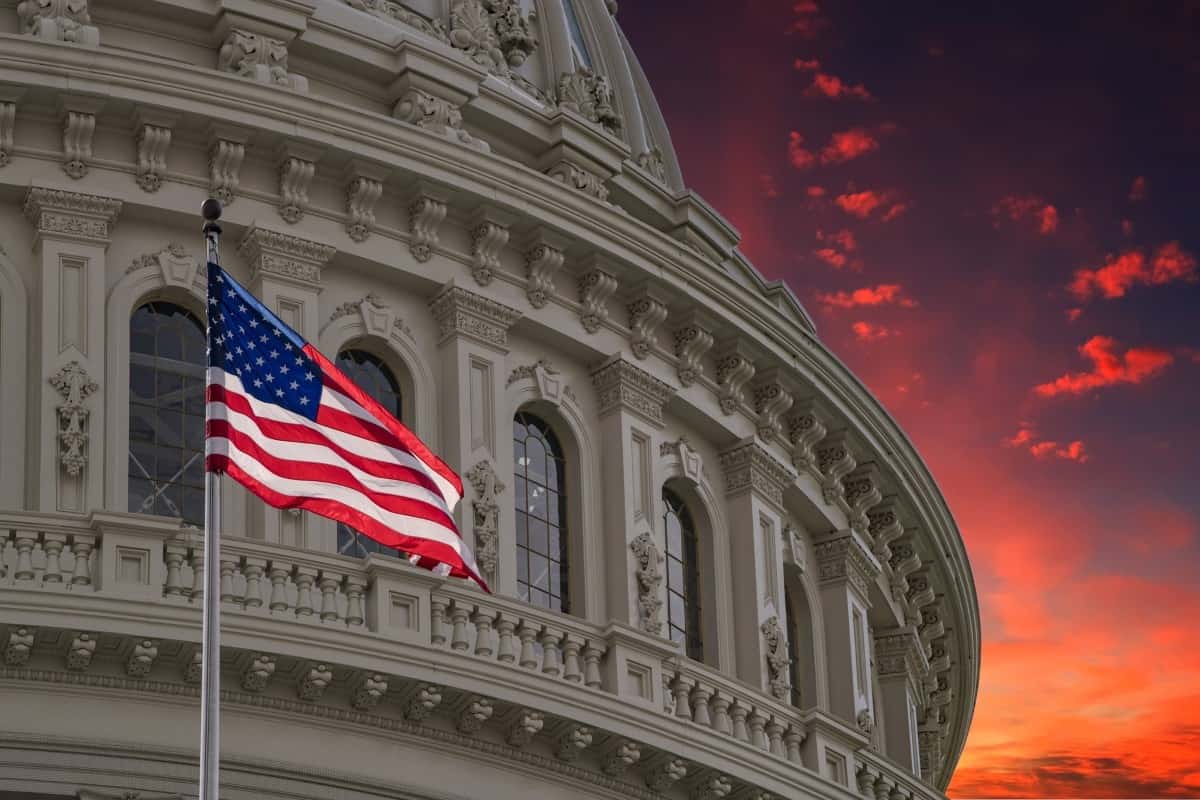
The Congressional Budget Office (CBO) performs nonpartisan analysis for the U.S. Congress. The latest Budget and Economic Outlook released March 2024, offered dire projections for the country’s fiscal and economic landscape over the upcoming decades. Unfortunately the national debt is higher than initially anticipated and is projected to hit $141 trillion by 2054.
Retire Abroad and Still Collect Social Security? Avoid These 9 Countries Where It’s Not Possible

Dreaming of retiring to a sun-drenched beach or a quaint village? Many Americans envision spending their golden years abroad, savoring the delights of new cultures and landscapes. However, an essential part of this dream hinges on the financial stability provided by Social Security benefits. Before packing your bags and bidding farewell, it’s crucial to know that not all countries play by the same rules when it comes to collecting these benefits overseas. Here are the nine countries where your dream of retiring abroad could hit a snag, as Social Security benefits don’t cross every border. Avoid living in these countries so your retirement plans don’t get lost in translation.
Retire Abroad and Still Collect Social Security? Avoid These 9 Countries Where It’s Not Possible
Nearly a Million People Risk Losing Over $1 Billion in Unclaimed 2020 Tax Refunds If They Don’t Act by May 17
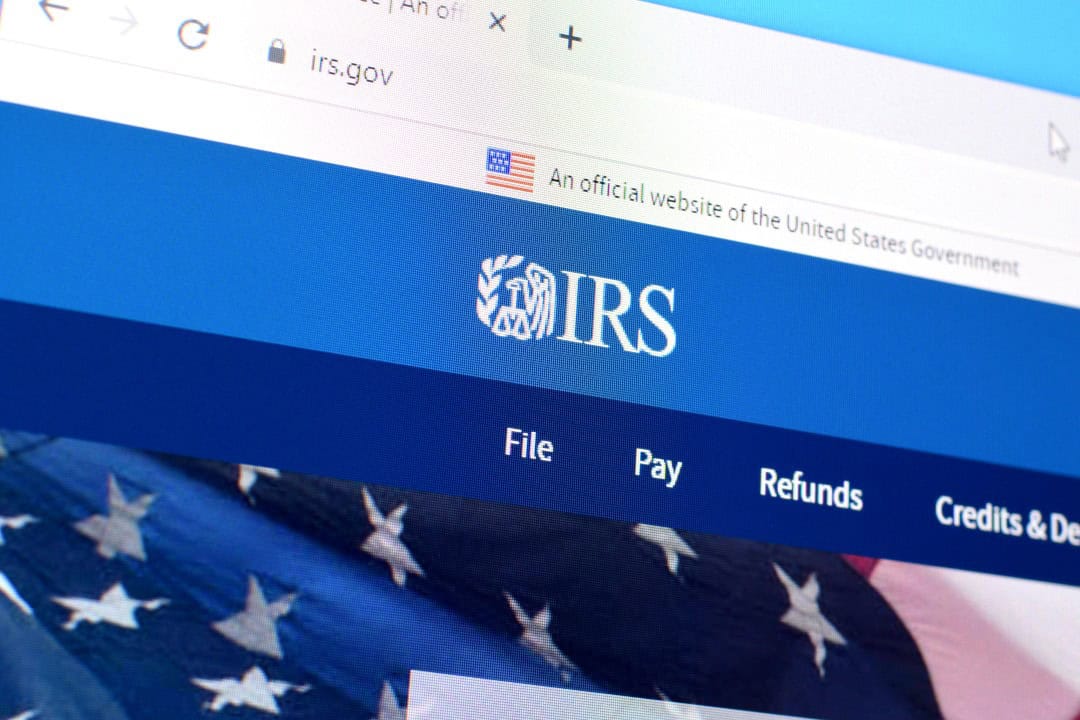
Tick tock, the clock is counting down for nearly a million Americans who stand on the brink of losing out on a staggering sum of over $1 billion in unclaimed tax refunds from 2020. With the May 17 deadline looming, it’s a race against time to secure what’s rightfully yours.
The 9 States Taxing Social Security in 2024 and the 2 That Just Stopped
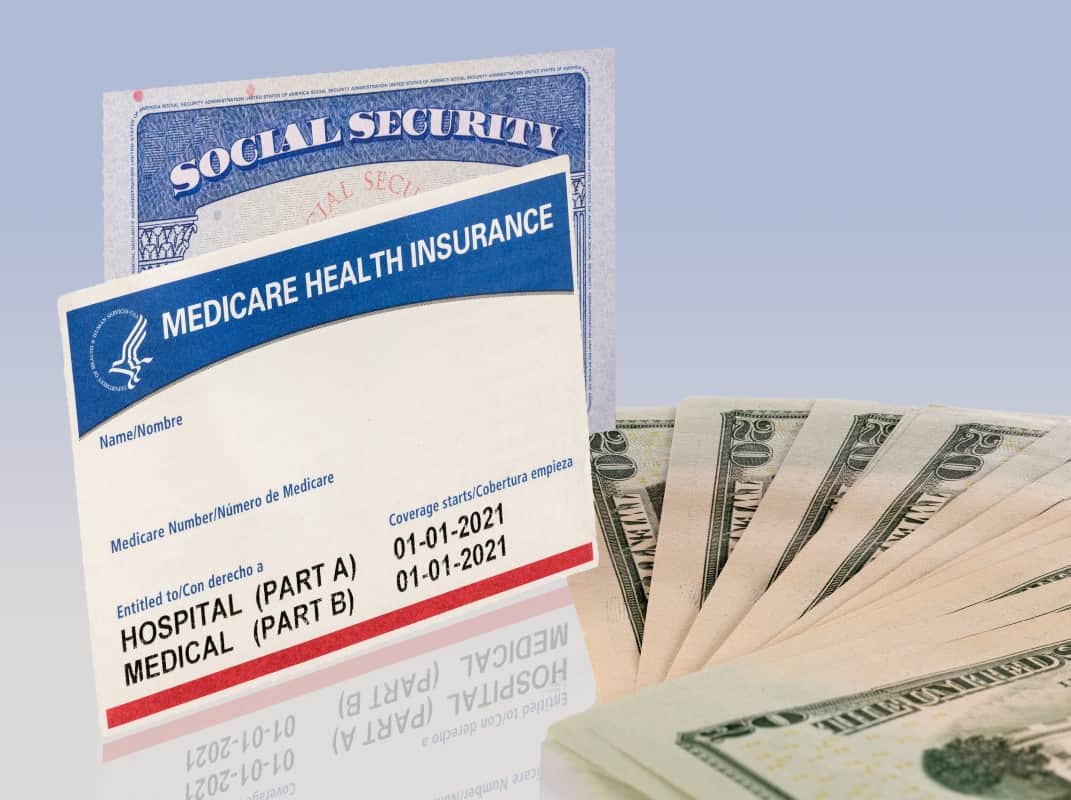
As 2023 tax filing season draws to a close, retirees across the nation are adjusting their financial plans for 2024, but a crucial detail could drastically alter the landscape of retirement living: the taxing of Social Security benefits. While many bask in the belief that their golden years will be tax-friendly, residents in nine specific states are facing a reality check as their Social Security benefits come under the taxman’s purview. Conversely, a wave of relief is set to wash over two states, marking an end to their era of taxing these benefits. This shift paints a complex portrait of retirement planning across the U.S., underscoring the importance of staying informed of the ever changing tax laws. Are you residing in one of these states? It’s time to uncover the impact of these tax changes on your retirement strategy and possibly reconsider your locale choice for those serene post-work years. Here are the 9 states taxing social security benefits.
The 9 States Taxing Social Security in 2024 and the 2 That Just Stopped
Buy Borrow Die: How To Avoid Taxes Like the Rich

The “Buy, Borrow, Die” strategy has been adopted by affluent individuals who enlist the aid of financial planning specialists to maintain their lavish lifestyles while minimizing taxes. Although the strategy seem to be a recent phenomenon, Professor Ed McCaffery developed his iconic “Buy, borrow, die” theory in the mid-1990s to explain how the wealthy aren’t paying taxes because of perfectly legal reasons.
Buy Borrow Die: How To Avoid Taxes Like the Rich

John Dealbreuin came from a third world country to the US with only $1,000 not knowing anyone; guided by an immigrant dream. In 12 years, he achieved his retirement number.
He started Financial Freedom Countdown to help everyone think differently about their financial challenges and live their best lives. John resides in the San Francisco Bay Area enjoying nature trails and weight training.
Here are his recommended tools
M1 Finance: John compared M1 Finance against Vanguard, Schwab, Fidelity, Wealthfront and Betterment to find the perfect investment platform. He uses it due to zero fees, very low minimums, automated investment with automatic rebalancing. The pre-built asset allocations and fractional shares helps one get started right away.
Personal Capital: This is a free tool John uses to track his net worth on a regular basis and as a retirement planner. It also alerts him wrt hidden fees and has a budget tracker included.
Streitwise is available for accredited and non-accredited investors. They have one of the lowest fees and high “skin in the game,” with over $5M of capital invested by founders in the deals. It is also open to foreign/non-USA investor. Minimum investment is $5,000.
Platforms like Yieldstreet provide investment options in art, legal, structured notes, venture capital, etc. They also have fixed-income portfolios spread across multiple asset classes with a single investment with low minimums of $10,000.






